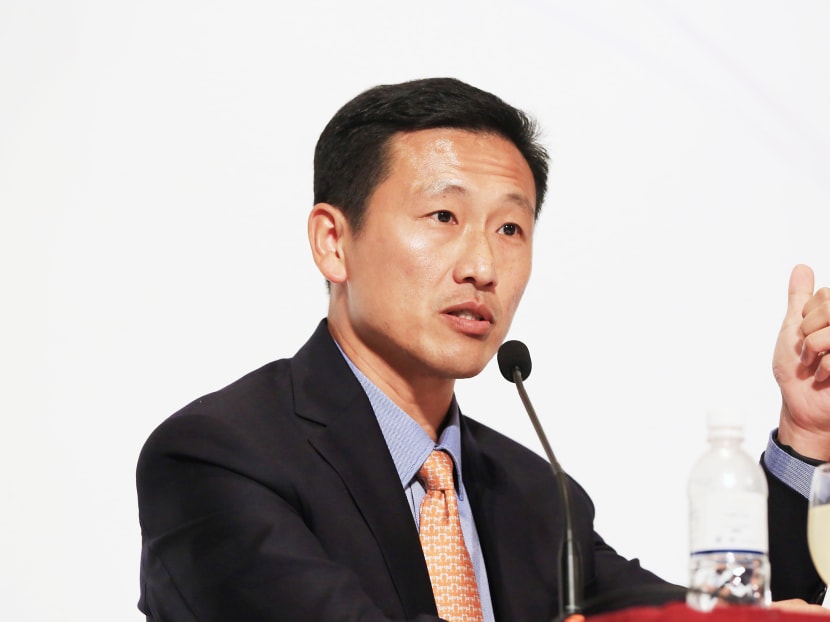Security challenges take more than effective military defences to tackle: Ong Ye Kung
SINGAPORE — To respond to security challenges, every nation today needs an expanded toolkit of solutions that goes beyond effective military defences, said Second Defence Minister Ong Ye Kung on Monday night (Jan 29).

Every nation today needs an expanded toolkit of solutions that go beyond military defences to overcome security challenges, where psychological defence becomes important during peacetime, said Second Minister for Defence Ong Ye Kung on Monday. TODAY file photo
SINGAPORE — To respond to security challenges, every nation today needs an expanded toolkit of solutions that goes beyond effective military defences, said Second Defence Minister Ong Ye Kung on Monday night (Jan 29).
Enemies are increasingly non-state players and, more likely, will agitate and inflict damage just below the threshold of triggering an all-out war, he said.
Psychological defence could become the most important prong of peacetime defence but, in the short term, nations are increasingly recognising the need for laws to tackle malicious online falsehoods, he said.
Mr Ong was speaking to defence officials, senior military officers and academics at a dinner that was part of a meeting to shape the agenda for the Shangri-La Dialogue later this year.
Security challenges include developments in the Korean Peninsula, terrorism, online falsehoods and the retreat of globalisation, he said.
Online falsehoods are undermining the social fabric and national unity to a greater degree and “today, media as we know has been hijacked by something much more unpredictable and volatile, even vicious”, he said.
Psychological defence is about the ability of people to trust one another, have faith in non-corrupt societal and Governmental institutions, and remain resilient to forces aimed at sowing discord, he added.
Mr Ong cited the people of Finland as an example, noting the high level of societal cohesion and mutual trust they have in each other. The Finns, for instance, can look up one another’s income tax returns online and the amount of traffic fines imposed is proportionate to one’s income.
“It is a cultural ballast, arguably stronger than their military defence,” he said.
In the short term, Mr Ong said countries increasingly recognise the need for legislation and regulatory safeguards to combat malicious online falsehoods. The Singapore Government recently released a 21-page paper to highlight the threat of deliberate online falsehoods and has set up a Parliamentary Select Committee to solicit views from the public and recommend solutions.
Leaders of all major religions in Singapore take active measures to stem the spread of extreme ideologies.
The threat of terrorism continues to be one of the region’s most serious preoccupations, he noted.
Terrorist groups are expected to operate with increasing coordination and sophistication across borders. Groups have also been using more sophisticated technology like encrypted communication platforms and cryptocurrencies to evade detection, said Mr Ong.
And while globalisation is double-edged, it leads to greater interdependence of nations – and greater global security – overall, he said. “So for the world to be a safer place, the global community of nations will always look towards the big powers, hoping that they will continue to manage their domestic politics well, be the bastions of international order, and champions of human progress and modernity through multilateral cooperation and globalisation,” he said.
As for uncertainty in the Korean Peninsula, Mr Ong said the parties involved are likely to oscillate between the extremes of a benign scenario and one of escalating rhetoric. “This is overall an uncertainty that all countries in the region will have to live with and to manage,” he said.
The meeting, the 6th International Institute for Strategic Studies Fullerton Forum: The Shangri-La Dialogue Sherpa Meeting, saw South Korea’s Minister of National Defense Song Young-moo as the keynote speaker.






